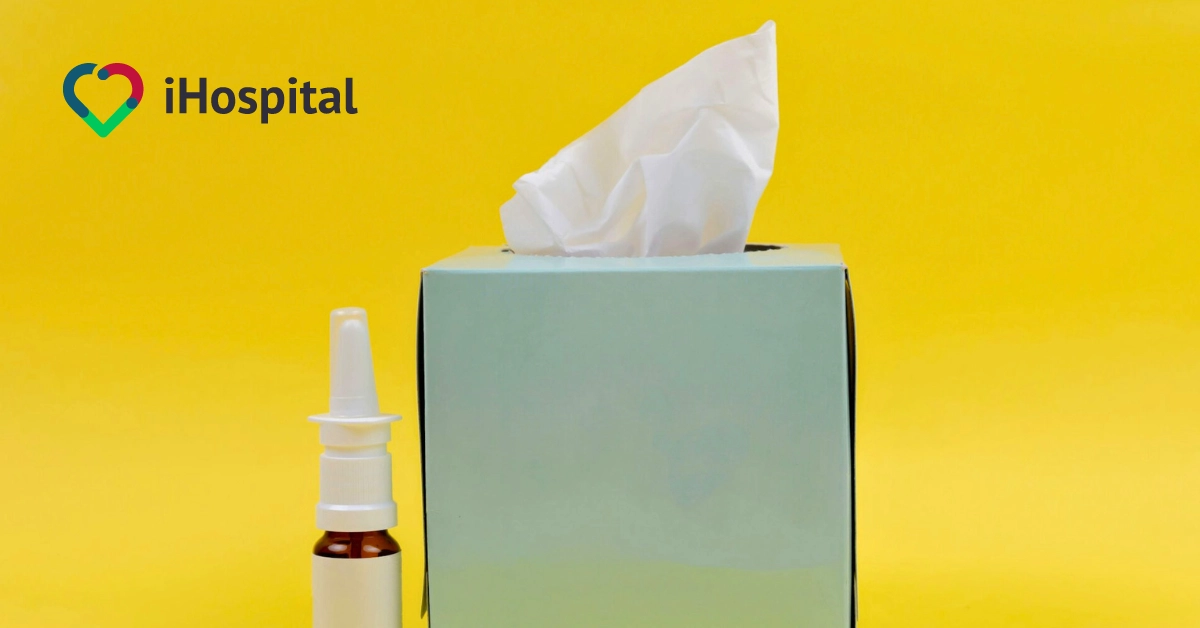
Tips and tricks for dealing with seasonal allergies
2024-05-30
<p>Many of us eagerly await the arrival of spring every year; picnics in the park, strolling among the trees outdoors, and enjoying the warmth of the sun. However, for many of us, the arrival of spring signals the beginning of the battle with seasonal allergies, preventing us from enjoying the joys of this time of year: constant sneezing fits, debilitating sinus pressure, runny noses, watery eyes, and on and on! What was supposed to be a season of activity and vitality becomes a battleground against pollen and allergens.</p><p>How can you enjoy the beauty of spring without falling victim to seasonal allergies? Explore tips and solutions for dealing with seasonal allergies, spring or otherwise.</p><h2>Tips and tricks for dealing with seasonal allergies</h2><p>Dealing with seasonal allergies can be challenging, but there are many tips and solutions that can help you alleviate symptoms and live more comfortably during allergy season, from natural remedies and over-the-counter medications to treat allergies at home, to prescription medications and allergy testing with a doctor.</p><p>By implementing these tips and solutions, you can better manage seasonal allergies and minimize their impact on your daily life.</p><h3>1. Identify and avoid your allergens</h3><p>Knowing which allergens are causing your symptoms is half the battle; this enables you to minimize your exposure to them as much as possible. Common triggers include: Pollen from plants, as well as mold and dust mites.</p><p><strong>Try the following tips:</strong></p><ul><li>Try to limit outdoor activities on days when pollen counts are high, which is common in the spring.</li><li>Shower and change your clothes after returning from outside, to remove pollen from your skin and hair, and prevent it from being transferred to bedding and furniture.</li><li>Keep windows and doors closed during peak pollen seasons to prevent allergens from entering your home.</li><li>Wear sunglasses and a wide-brimmed hat to prevent pollen from coming into contact with your eyes and face when spending time outdoors during allergy season.</li><li>Use a face mask when gardening and planting.</li><li>Keep pets out of the bedroom.</li></ul><h3>2. Keep the air clean</h3><p>Use an air purifier and an air conditioner with high-quality filters in your home or car. This helps circulate the air in your home and capture pollen, dust, and other allergens, improving indoor air quality.</p><h3>3. Clean your home regularly</h3><p>Clean your home regularly to minimize indoor allergens, <strong>including:</strong></p><ul><li>Cleaning carpets and surfaces with a damp cloth to pick up allergens instead of spreading them into the air.</li><li>Wash bedding, blankets, and pillowcases in hot or warm water every week or two to remove pollen and other allergens.</li></ul><h3>4. Rinse your nose with saline</h3><p>Use saline nasal solution to flush pollen and other irritants from your nose. This helps you remove allergens and mucus from your nasal passages, thereby reducing congestion and relieving allergy symptoms.</p><p>The saline solution can be prepared at home by adding 1.5 teaspoons of salt and 1 teaspoon of baking soda to a liter of sterile water, or you can buy the solution ready-made at the pharmacy.</p><h3>5. Use medications</h3><p>Over-the-counter medications can help relieve allergy symptoms,<strong> including</strong></p><ul><li><strong>Antihistamine pills</strong>, such as loratadine (Claritin) or cetirizine (Zyrtec).</li><li><strong>Antihistamine eye drops</strong>, such as ketotifen (Orcasid) to soothe watery, itchy eyes.</li><li><strong>Decongestants</strong>, such as pseudoephedrine (Sudafed).</li><li><strong>Nasal cortisone sprays</strong>, such as fluticasone (Flonase).</li><li><strong>Combination medications</strong>, which contain both antihistamines and decongestants.</li></ul><p>If you have allergies every year, start using allergy medications about two weeks before allergy season and the expected onset of symptoms, and continue to take them regularly throughout the season.</p><h2>Symptoms not gone? Talk to your doctor.</h2><p>If your seasonal allergy symptoms are severe or persistent, and do not improve despite previous measures and over-the-counter medications, see your doctor to determine the appropriate treatment depending on the severity of your allergies.</p><p>Your doctor may recommend <strong>allergy testing</strong> to identify the allergens causing your symptoms and recommend appropriate medical interventions, including <strong>stronger medications</strong> such as Singulair (Montelukast) or <strong>allergy shots (immunotherapy)</strong> to help minimize your body's reactions to allergens over time.</p><p><strong>Don't let the symptoms of sneezing, itching, and congestion hold you back any longer! Take the first step towards a comfortable, seasonal allergy-free life and <a href="https://www.ihospitalapp.com/ar/search/%D8%A7%D9%84%D8%AD%D8%B3%D8%A7%D8%B3%D9%8A%D8%A9-%D9%88%D8%A7%D9%84%D9%85%D9%86%D8%A7%D8%B9%D8%A9/%D8%A7%D9%84%D8%A3%D8%B1%D8%AF%D9%86/%D8%B9%D9%85%D8%A7%D9%86">schedule an appointment today</a> with our team of experienced allergists at iHospital, we are here to help you enjoy the outdoors without the burden of allergy symptoms.</strong></p><h2>Do natural remedies reduce allergies?</h2><p>Some people may find relief from seasonal allergies by using natural remedies such as honey and certain herbal supplements such as vitamin C, quercetin, or spirulina, and while they may show some effectiveness in relieving symptoms, their effectiveness has not yet been scientifically proven and more research is needed. Consult your doctor about the possibility of using them.</p><hr><h2>References</h2><ol><li aria-level="1"><a href="https://acaai.org/allergies/allergic-conditions/seasonal-allergies/">Seasonal Allergies | Causes, Symptoms & Treatment</a>, ACAAI Public Website</li><li aria-level="1"><a href="https://www.mayoclinic.org/diseases-conditions/hay-fever/in-depth/seasonal-allergies/art-20048343">Seasonal allergies: Nip them in the bud</a>, Mayo Clinic</li><li aria-level="1"><a href="https://www.healthpartners.com/blog/how-to-treat-and-relieve-seasonal-allergies/">How to treat and relieve seasonal allergies</a>, HealthPartners Blog</li><li aria-level="1"><a href="https://www.healthline.com/health/allergies/seasonal-allergies">Seasonal Allergies: Symptoms, Causes and Treatment</a>, Healthline</li></ol>